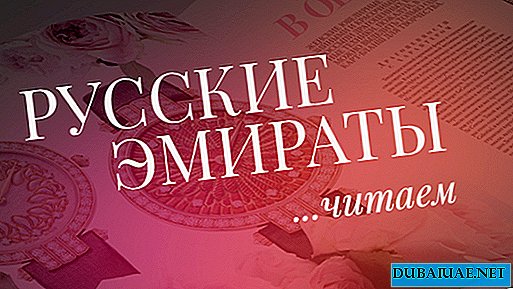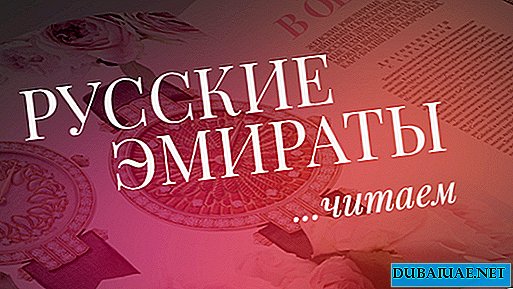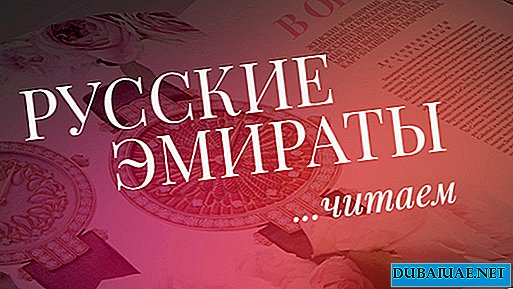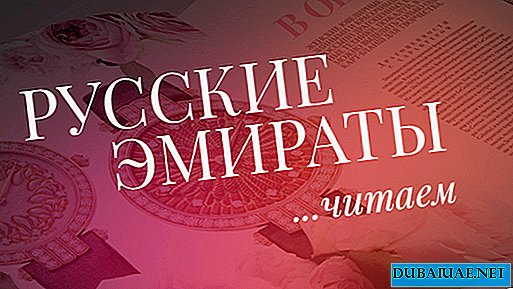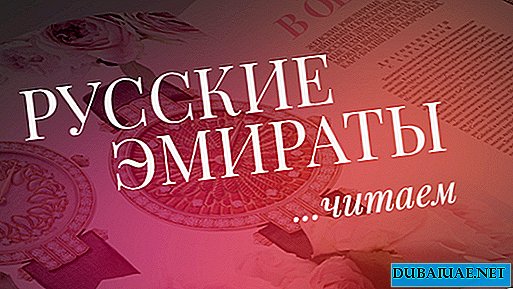In recent years, weddings of indigenous emirates have become the subject of close interest of the UAE government. EXACTLY THEY DIRECTLY INFLUENCE ON THE POPULATION AND WELL-BEING OF THE COUNTRY.
 A wedding in the Arab world is the largest holiday. In traditional society, this is not just the registration of a new “cell” by a pair of lovers - this is the moment, the union of two large families. And in the East it is customary to approach him with due attention. Now Arab customs are fancifully intertwined with modern world trends and vary depending on the country, locality (urban or rural), family. And in the UAE - also from the emirate and the tribe.
A wedding in the Arab world is the largest holiday. In traditional society, this is not just the registration of a new “cell” by a pair of lovers - this is the moment, the union of two large families. And in the East it is customary to approach him with due attention. Now Arab customs are fancifully intertwined with modern world trends and vary depending on the country, locality (urban or rural), family. And in the UAE - also from the emirate and the tribe.
Islamic canon
The marriage union was destined to play an important role in the origin of Islam. This is the first marriage of the Prophet Muhammad with a woman named Khadija, whose history is able to refute many stereotypes. Khadija was married twice, became a wealthy woman, independently conducting business on sending trade caravans. Having hired Muhammad to her work, she, despite the objections of her father, herself made him an offer. According to legend, at the time of the wedding she was 40, he was only 25. It was the moral and material help of Khadija, who immediately believed in her husband’s prophecy, that facilitated the mission of Muhammad in Mecca, and her death was one of the reasons why the prophet had to move to Medina ...
Today, marriage and family issues are one of the most developed areas of Islamic law. Thus, a Muslim cannot be married to more than four women at the same time (an exception was made only for the prophet). A husband should treat wives with the same attention. For example, to allocate each separate room, to provide food and clothes no worse than in the parental home.
The Qur'an warns: if a man is afraid to be unjust, then he should have only one wife. According to one of the religious schools, a Muslim can marry a Christian or Jewish woman, but usually require the bride to accept Islam. A Muslim woman can only marry a co-religionist.
The Koran forbids alliances with some close relatives, for example, you cannot marry two sisters. However, in many Arab countries, the most enviable party is Bint Alamm, the daughter of a paternal uncle.
One of the most important elements of marriage is mahr, the property that the future husband allocates to his wife. It will be received by her in case of divorce at the initiative of her husband (talak) or widowhood. A makhr can be money, jewelry, everyday items, clothes, bags, perfumes ... The size of makhr is negotiated by the families at the engagement (hitba) and indicated in the marriage contract. And mahr himself is in the presence of an imam or notary. Untimely payment of mahr gives a woman the right to a conditional divorce (fakh). Mahr cannot be identified with kalym: in contrast to the ransom, the “payment” for a woman to her family is, first of all, an instrument for protecting women's rights.
According to Islamic law, if the bride enters into her first marriage, then the father or guardian gives consent for her, during repeated marriages the woman is completely independent. Divorce can be initiated by both husband and wife. The husband can apply the formula “talak” (“absolution”), then the wife keeps the mahr. After a divorce, an idda (abstinence) period is assigned to find out if a woman is pregnant. The wife can initiate a divorce (fash) or terminate the union by agreement with her husband. Sometimes a marriage ends with mutual curses (vines) about a possible betrayal, then a woman loses her mahr, and a man has the right not to recognize a child born during an idda.
An interesting form of relationship is a temporary contractual marriage, the so-called muta (pleasure, an object of pleasure, - author's comment). Muta can last 99 years, or maybe one day! The maintenance of the wife instead of makhra and remuneration at divorce is made. In pre-Islamic Arabia, muta was common, but in our time it is allowed only for most Shiites.
Extramarital affairs are a deed of God. Unlike crimes against a person (even murder), the punishment for which can be mitigated at the behest of the victim or his family, Allah has no forgiveness for adultery. Married persons will be stoned if one of the criminals is single - a hundred blows with a whip or a stick (blows, by the way, are applied so that the internal organs are not damaged). It is important that the prosecution requires four honest witnesses who witnessed the heinous act directly ...
Thus, the case of Mugira ibn Shuba, one of the associates of the prophet, who played a prominent role in the conquest of Iraq, gained great fame in Islamic history. A great connoisseur of the fair sex, legally married in 300 marriages, found a married passion in Basra. And he began to visit her regularly. Well-wishers were not slow to report this to caliph Umar. He did not want to defame Mugiru, but he could not hush up the fact of adultery. The case was decided by four witnesses. Three literally painted a scandalous scene, but the fourth, Ziad, showed diplomacy and stated that he had never seen the relevant details. As a result, false witnesses were simply carved.
However, one cannot imagine the history of Islamic societies as completely patriarchal or determined by strict religious prohibitions. It is enough to recall the role of the harem in the Ottoman Empire and the names of the great wives of the rulers ... For example, Khayzuran, who became the wife of the Caliph Al Mahdi from the former slave and the mother of two heirs, including the great Harun Al Rashid. Or the Zubeids, the spouses of Harun and the mother of his heir. And of course, the legendary Alexandra Anastasia Lisowska - the darlings and spouses of the Ottoman Sultan Suleiman the Magnificent.
Often, literature in Islamic countries was emphasized frivolous. The playful name of the work of one medieval author speaks for itself: "Adultery and his joys" ...
Emirate wedding today
The path to the wedding of indigenous emirates who have come of age (18 years on the lunar and about 17 and a half years on the solar calendar) is quite long. Most marriages are still concluded by agreement of families, although not by coercion. If a young man or his relatives have a worthy couple in mind, then the first step is to “inquire” about the girl’s family and her social status. Most often, preference is given to the bride from the groom's tribe.
The first to meet are women - members of both families. Sometimes the future groom himself is present at these meetings: here he can talk with the bride and finally decide whether they suit each other. Then follows the meeting of the male half of the families. Now at the bride’s house. During this meeting, the head of the groom’s family formally asks for the girl’s hands, and the head of the bride’s family agrees. Families then decide on the mahr and accept the treats. Now women can discuss the details, for example, holding a milhi (formal marriage in accordance with Sharia), buying rings (dible) for engagement and weddings, organizing celebrations, the specific content of the mahr ...
The engagement follows. Usually it takes place in the bride's house: future spouses exchange rings in the presence of close relatives. At the same time (or the day before the wedding), a mile may take place. The marriage union is registered in a Sharia court, and some families invite a judge to the bride's house. Representatives of the newlyweds should be at the ceremony - the father of the bride and two other Muslim witnesses must be present. In the Emirates, the milha is most often held in separate rooms for men and women of two families, and only a religious sheikh and children under eight can move between them.
The judge reads quotes from the Koran, the bridegroom and the head of the bride's family repeat the wedding vows. The Sheikh can address the bride several times with a long speech, and she agrees: it is said that during the Shiite’s ceremony for the Shiites, some judges repeat their appeal to the bride 40 times! Details of the prenuptial agreement and mahr are certified for compliance with Sharia. All relatives greet the newlyweds with loud exclamations. Finally, the union of the bride and groom is officially approved, they can remain together. But before the main wedding ceremony and full marriage there are still a few steps.
Sometimes, on the eve of the wedding, a holiday is organized in the bride’s house, at which the groom’s family presents the bride with jewelry, and the future husband puts it on her to the songs and dances of relatives. But it happens that gifts from relatives of the groom are worn on the bride right during the wedding feast. On the eve of the celebration, gifts are given by other wedding guests. And in some Arab countries, the gifts of the guests are given at all throughout the "Mubarak" - the month following the honey.
One of the favorite celebrations, which is organized before the wedding by most emirates, as well as residents of the Persian Gulf, Egypt and Sudan, is the so-called "night of henna" ("laylat alkhinna"). The main event of this Middle Eastern bachelorette party, to which the bride gathers her relatives and friends, is the application of traditional patterns from henna to the hands and feet of women.
A professional craftswoman decorates the bride with a special conical shape tool, using the most popular motifs - flowers and butterflies. Sometimes, before the wedding, a girl is also given a depilation in the traditional way.
At the festival, they organize belly dancing, in which women from small to large in the corresponding dresses participate. The atmosphere is given a traditional flavor with the help of pillows, tents, Arabic clothing, incense, gifts are distributed to all participants. Sometimes they invite palmists, fortune-tellers, and even DJs. Usually, on the night of henna, the bride’s dowry is transferred from the parent to her new home. That very evening, a modest "bachelor party" is often arranged there. Some couples also like to celebrate the first Ramadan, which they spend together after the engagement.
Finally, there comes the climax - the wedding celebration itself. Weddings in Arab countries are mixed and separate for men and women. In the Emirates, the second type is common. Men throw a festive party, but women organize the most colorful celebration. Walks last up to two to three days, sometimes with substantial interruptions, for example, in ten days.
Emirates love large-scale events and, of course, are not limited to a modest Zaffa ceremony (in Arabic there is even a special verb “Zaffa” - “to solemnly take the bride to the groom”). The process is celebrated on a grand scale - at home, in hotels and special rooms, offering wedding services in abundance in abundance in Arab countries. Sometimes ceremonies are held in traditional tents. Invitations are sent to all guests on behalf of men - the heads of two families.
The celebration itself traditionally begins with a delay to give guests (and especially guests) to get together. On the "women's" day, the fair sex demonstrate the splendor of evening dresses Jumeirah Beach Hotel and jewelry. Most often - from fashionable Western couturiers. Unmarried people are especially zealous. Their dresses are sometimes overly frank. And girls dress up for inconspicuous sitting ladies - members of newlywed families, as a rule, who look after worthy parties at other people's weddings to their sons and nephews. So for the unmarried at the Arabian wedding, the main thing is not the treasured bouquet of the bride (although the tradition of catching the bouquet also found its way in the UAE), but the approving reviews of the elderly aunts.
By the way, the bride can appear in public only in the middle of the evening. Having flaunted enough in a luxurious wedding dress (the classic dress of a newlywed), she settles on a special "throne" - "jackpot", on which the whole holiday sits, evoking the admiring glances of guests and girlfriends. Although many wealthy families are not limited to the throne and arrange podiums for a real wedding fashion show. But the most popular entertainment is dancing. Sometimes at weddings, women symbolically “mourn” the loss of friends who became happy wives. Photography at most Emirate weddings is prohibited in accordance with Islamic law. However, music, despite the double attitude of zealots of piety towards it, was widely used among the emirates. Both Arabic and Western tunes are played.
At the entrance, guests can scent themselves with Arabic perfumes. In this case, tart oriental aromas, along with the fragrance of special smoking sticks (bahur), are impregnated throughout the room. Often the room is decorated with stylish floral arrangements.
An abundance of food is the main sign of traditional hospitality, a demonstration of generosity and wealth. In the beginning, guests, in accordance with Islamic standards, refresh themselves with the help of soft drinks - flavored water of various kinds. They also serve mint tea and cardamom coffee. At the wedding, they always cook several traditional dishes. First of all, haris (a mixture of meat and wheat grains that simmer for a long time until smooth), makhbus and biryani (meat, fish or chicken on a pillow of seasoned rice), as well as a variety of kebabs. Wealthy families can afford the legendary Emirati dish of husi - a whole roasted camel in which a sheep, a couple of dozen chickens, fish, eggs and rice are placed.
Finally, when the plates are gradually empty, the moment of the groom's appearance is drawing near (before this, women usually put on bedspreads). He appears in traditional clothes (dishdash) with ceremonial gold embroidery or in a European costume. Often accompanied by a musical group. A special place belongs to a completely universal tradition - the bride and groom cut a huge wedding cake together - sometimes they cut it with traditional Arabic swords. Young generously treat each other as a sign of mutual concern. Guests take turns congratulating the couple, and then either everyone leaves or continues to have fun, even after the bride and groom leave the holiday.
According to custom, a week after the wedding, another party is organized in the house of the newly-minted family, to which only women are invited. It is called "saba" - from the word "seven." There is also a honeymoon tradition, during which the newlyweds go on their first joint journey.
A matter of national importance
Today, many emirates choose to marry foreign women. And left out of work, unmarried emirates by the age of 25 replenish the lists of old maids. Tribal traditions exacerbate the situation. For example, modern women are increasingly taking care of their own careers, while the groom must match the bride's status! In addition, younger sisters are always married after the eldest. And her prolonged marriage creates additional problems for the family. But the main reason is the huge wedding costs. And above all, the size of the terry, long past reasonable boundaries. According to Islamic law, the minimum mahr is 30 grams of silver, while its upper limit is not limited.
Today in the UAE, it often exceeds 500 thousand dirhams ($ 135,000)! Not all men are ready to wallow in debt in order to follow the Arabic proverb: "He who wooes a beauty does not skimp on mahr." That is why 20% of emirates recently prefer to look for brides outside the country. "Wedding arithmetic" is poemiratically more reminiscent of the mathematical law of large numbers ... At least 300 guests are invited to the wedding. The average cost of celebrations is 300 thousand dirhams.At the same time, in wealthy families, according to the media, expenses increase to 4.5 million and more! Here, for just the performance of a traditional musical group, they can easily pay the price of an average emirate’s wedding ... Under these conditions, the UAE government is simply forced to take measures. Since 1992, the UAE Marriage Fund has been operating in the country, helping grooms with low salaries (and by local standards this is 20 thousand dirhams a month!) Build halls for mass weddings in order to reduce costs for them. The limit for mahr is set at 50 thousand dirhams, although the bride's relatives continue to insist on more. Finally, it was decided to educate fellow citizens by a personal example: at the last two weddings in royal families, the rulers of the Emirates did not arrange sumptuous feasts and receptions, thus urging citizens to "prudent extravagance."
All this is designed to increase the number of traditional Emirate families and reduce the number of single women. By the way, they are offered polygamous marriages as an alternative, recently more and more popular among emirate men who have seen their lives. But the choice is up to the emirates.



